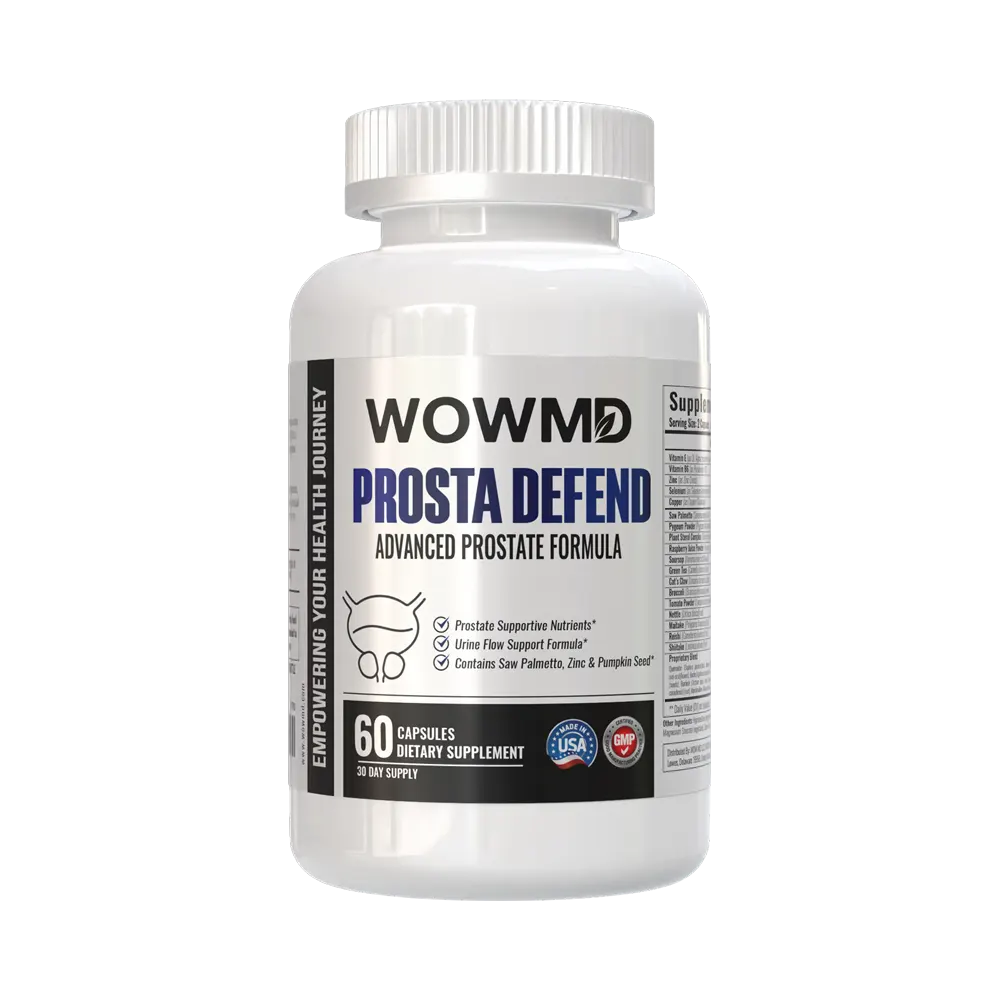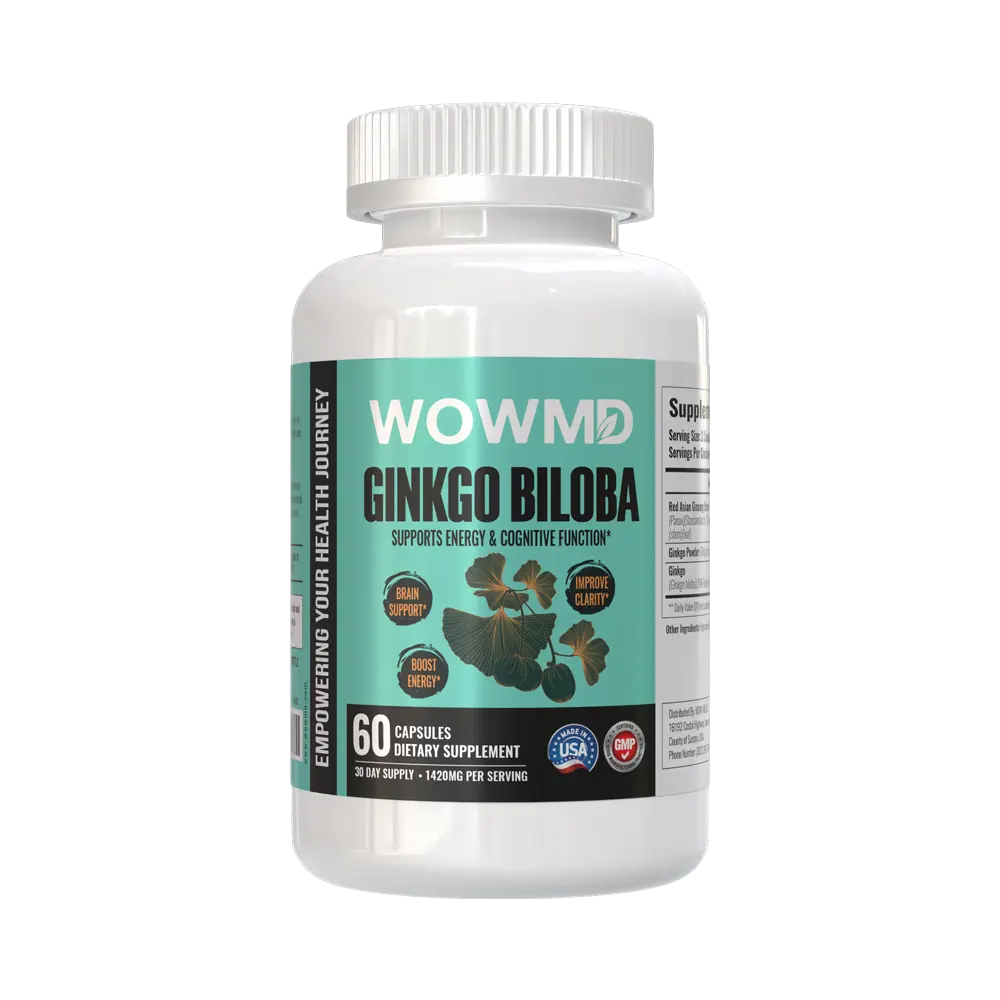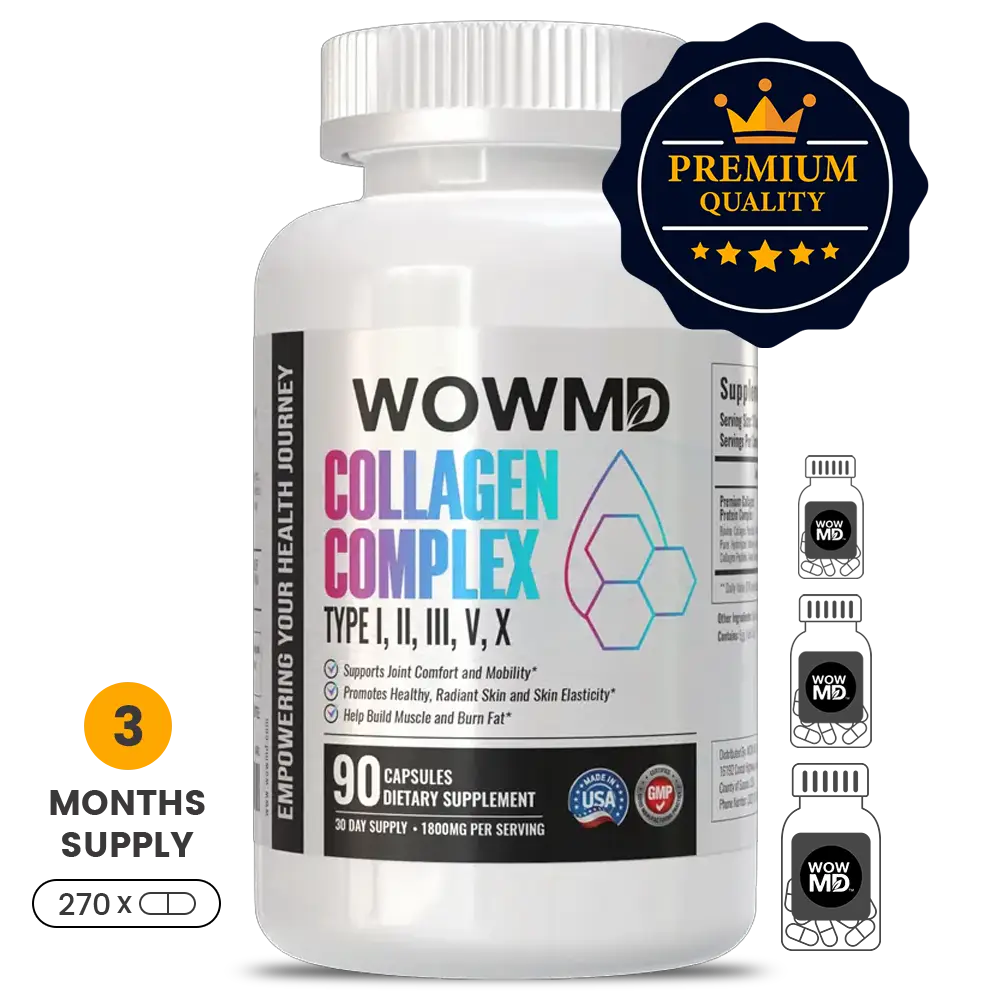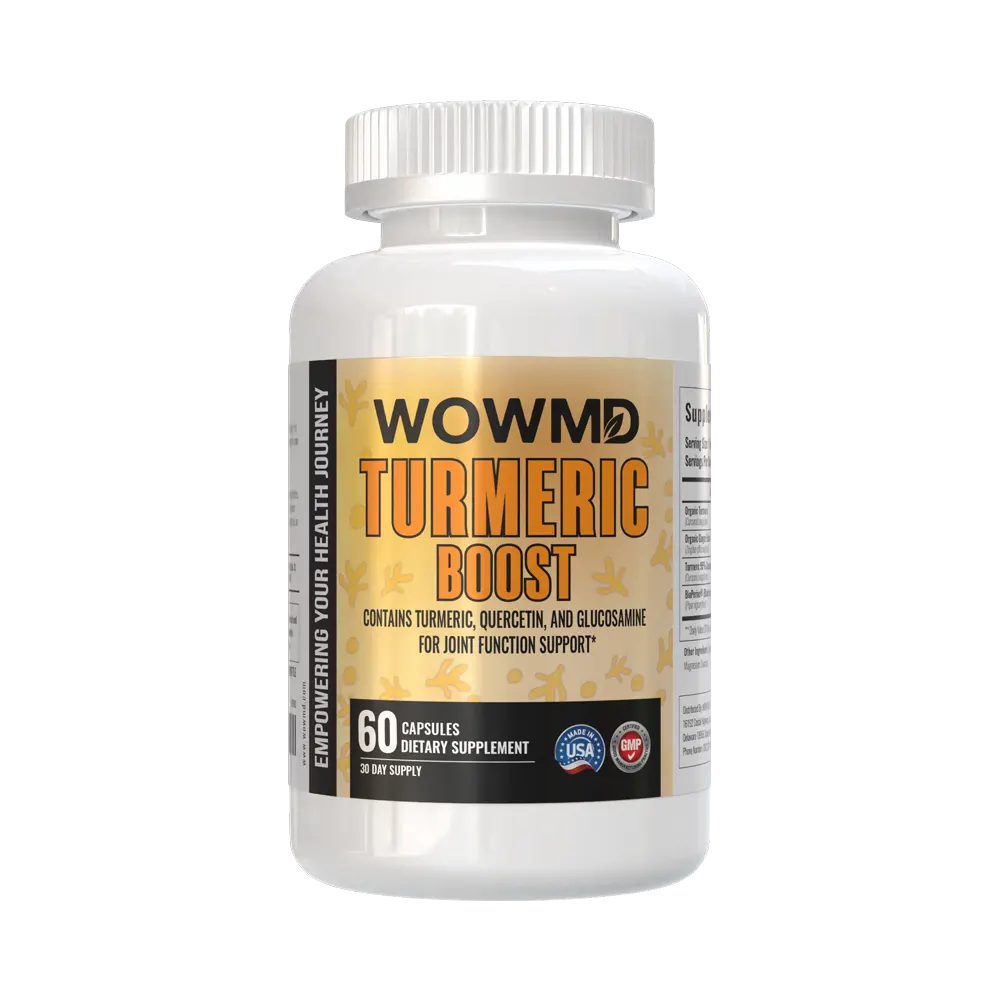The Ultimate Guide to the Joint Supplements for Arthritis in Seniors
Maintaining joint health is essential to seniors' overall well-being. In this article, we'll guide you through joint supplements for seniors, highlighting both their benefits and potential drawbacks.

Growing older doesn't mean giving up an active lifestyle. Many women over 50 find themselves struggling with joint discomfort that can limit their mobility and enjoyment of daily activities. Joint health becomes increasingly important as we age, with our bodies experiencing natural wear and tear over the years.
Joints are like the hinges that keep our body moving smoothly. As we get older, these hinges start to creak and become less flexible. Factors like age, weight, previous injuries, and genetics all play a role in how our joints function. The good news? There are ways to support and maintain joint health that can help you stay active and independent.
Is There a Joint Supplement That Actually Works?
The world of joint supplements can feel overwhelming. With countless options available, it's natural to wonder if these supplements are just marketing hype or genuine helpers. The truth lies somewhere in between. While no supplement is a magic cure, certain nutrients can provide meaningful support for joint health.
Key Supplements for Joint Support
Omega-3 Fatty Acids
Omega-3s are like natural inflammation fighters for your body. Found in fish oil and certain plant sources, these fatty acids can help reduce joint stiffness and discomfort. They work by calming inflammation throughout the body, which is often a primary source of joint pain.
Vitamin D
Many seniors struggle with vitamin D deficiency, which can impact joint health. This essential vitamin helps your body absorb calcium and supports bone strength. Think of vitamin D as the foundation that keeps your skeletal system strong and resilient.
Collagen
Collagen is like the shock absorber for your joints. As we age, our natural collagen production decreases, which can lead to less flexible and more painful joints. Supplementing with collagen can help support joint cushioning and may reduce discomfort.
Glucosamine
Glucosamine is a compound naturally found in cartilage. As we age, our bodies produce less of this important substance. Supplements can help support cartilage health and potentially slow down joint degradation.
Turmeric
Turmeric is more than just a spice. Its active compound, curcumin, has powerful anti-inflammatory properties. Many seniors find relief from joint discomfort by incorporating turmeric supplements into their daily routine.
Benefits of Dietary Supplements for Joint Health
Dietary supplements offer several potential benefits for seniors:
- Reduced inflammation
- Improved joint flexibility
- Enhanced mobility
- Potential pain reduction
- Support for overall joint function
Beyond these core benefits, supplements can also provide a sense of hope and empowerment. Many seniors find that taking proactive steps toward joint health helps them feel more in control of their aging process. The psychological boost of doing something positive for your body can be just as important as the physical benefits.
Important Considerations for Seniors
Should Women Over 50 Take Glucosamine?
Many healthcare professionals recommend glucosamine for women over 50, especially those experiencing joint discomfort. However, it's crucial to consult with your doctor first. Every person's health needs are unique, and what works for one may not work for another.
The decision to take glucosamine isn't just about managing current discomfort. It's also about preventing future joint problems. Some research suggests that early intervention with glucosamine might help slow down joint degradation, potentially preserving mobility and independence in later years.
Combining Supplements Safely
Is it okay to take turmeric and glucosamine chondroitin together? Generally, yes. These supplements can work well in combination. However, always check with your healthcare provider to ensure they don't interact with any medications you're currently taking.
Supplement combinations can be like creating a personalized wellness recipe. Each ingredient brings its own unique benefits, and when carefully selected, they can work synergistically to support your joint health. Think of it as building a comprehensive support system for your body.
Do Supplements Really Help With Joint Pain?
Research shows mixed but promising results. While supplements aren't a complete solution, many seniors report significant improvements in joint comfort and mobility. The key is consistency and realistic expectations.
Personal experiences vary widely, but many users find hope in these natural approaches. Supplements aren't about overnight miracles but about gradual, sustainable improvements. Patience and consistency are your best allies in managing joint health.
Potential Side Effects in Seniors
Like any supplement, joint health products can cause side effects. Some people might experience:
- Mild digestive discomfort
- Allergic reactions
- Interactions with existing medications Always start with low doses and monitor how your body responds.
Understanding potential side effects is about being a smart, proactive health consumer. Your body is unique, and what works for one person might not work exactly the same for another. Keeping a health journal can help you track how your body responds to new supplements.
Exercises for Supporting Joint Health
Gentle exercises can complement your supplement routine:
- Swimming
- Walking
- Yoga
- Light stretching
- Tai Chi
These activities help maintain joint flexibility and muscle strength without putting too much stress on your joints.
Movement is medicine for aging joints. Beyond the listed exercises, the key is finding activities you enjoy. Dancing, gardening, or even gentle home workouts can be wonderful ways to keep your joints moving and healthy. The most important exercise is the one you'll actually do consistently.
Choosing the Right Supplement
When selecting a joint supplement:
- Look for reputable brands
- Check for third-party testing
- Read customer reviews
- Consult your healthcare provider
Think of choosing a supplement like selecting a trusted friend for your health journey. Don't be swayed by flashy marketing or miracle claims. Take your time, do your research, and prioritize quality and scientific backing over trendy promises.
Conclusion
Joint health is a journey, not a destination. Supplements can be a valuable tool in maintaining your mobility and quality of life. Remember, there's no one-size-fits-all solution. What works best is a combination of proper nutrition, gentle exercise, and professional medical guidance.
Stay active, stay informed, and don't let joint discomfort hold you back from enjoying life to its fullest!
Your journey with joint health is deeply personal. Embrace each small improvement, celebrate your body's resilience, and approach your wellness with kindness and patience. Every step you take is a step towards a more comfortable, active future.
About WOWMD Staff
The WOWMD Staff category features a diverse team of writers, each bringing specialized knowledge in areas such as nutrition, fitness, wellness, and more. Articles in this category benefit from insights provided by multiple experts. All content is peer-reviewed and regularly updated to ensure compliance with our editorial standards.
References
- Effectiveness and Safety of Glucosamine in Osteoarthritis: A Systematic Review - PMC https://pmc.ncbi.nlm.nih.gov/articles/PMC10366893/
- Vitamin D and Bone Health - The Journal of Nutrition https://jn.nutrition.org/article/S0022-3166(22)01747-3/fulltext
- Omega-3 Fatty Acids for Joint Health: A Comprehensive Guide - Rheum4us https://rheum4us.org/omega-3-fatty-acids-for-joint-health/
- (PDF) Collagen: A Brief Analysis https://www.researchgate.net/publication/337856728_Collagen_A_Brief_Analysis
- Anti-Inflammatory Effects of Curcumin in the Inflammatory Diseases: Status, Limitations and Countermeasures - PubMed https://pubmed.ncbi.nlm.nih.gov/34754179/
Evidence Based Research
This WOWMD content has been reviewed, as well as checked for facts, so as to guarantee the best possible accuracy.
We follow a strict editorial policy, especially related to the sources we use. Our articles are resourced from reputable online pages, with research drawn from academic institutions and peer-reviewed studies. You can click on the numbers in the parentheses (1, 2, etc.) and check out those references.
The feedback form on this page can be used to report content that is not accurate, up-to-date or questionable in any manner.
We do NOT intend for the information presented through our articles to replace the medical relationship with a qualified physician, nor does it represent specialized advice.


 Skin Detoxification Bundle
Skin Detoxification Bundle Complete Weight Loss Bundle
Complete Weight Loss Bundle Heart Care Bundle
Heart Care Bundle Better Immunity Bundle
Better Immunity Bundle  Men's Immunity & Prostate Health Bundle
Men's Immunity & Prostate Health Bundle Stress + Energy + Wellness Combo
Stress + Energy + Wellness Combo  Energy Booster Combo
Energy Booster Combo Natural Skin Care Bundle
Natural Skin Care Bundle Workout Supplements Combo
Workout Supplements Combo Cognitive Health & Vision Combo
Cognitive Health & Vision Combo Joint Health Support Combo
Joint Health Support Combo

















 By WOWMD Staff
By WOWMD Staff